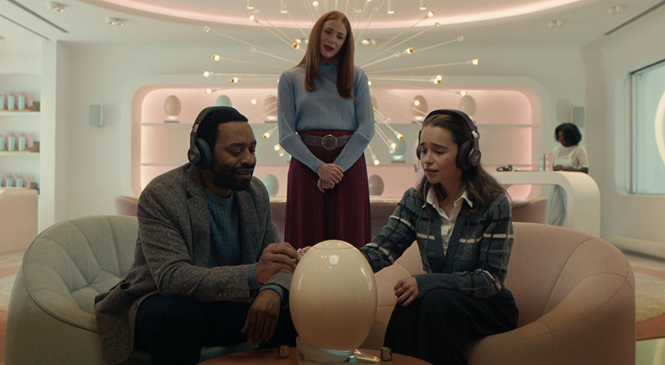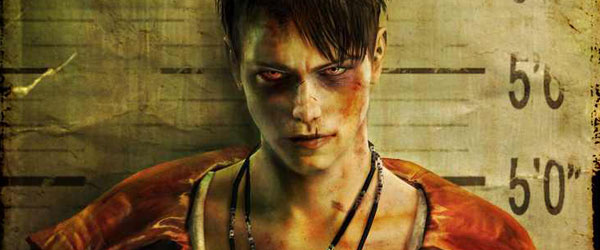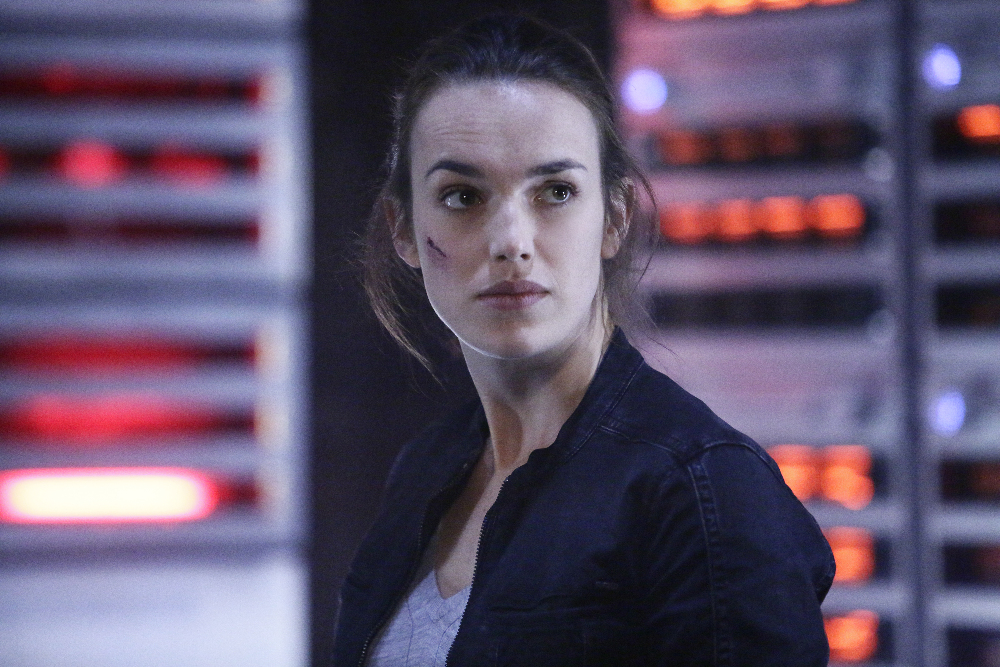THE POD GENERATION: Parenthood, Upgraded?

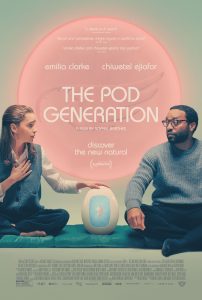
The Pod Generation (2023)
Written and Directed by Sophie Barthes
Produced by Nadia Khamlichi, Genevieve Lemal, Martin Metz, Yann Zenou
Rated PG-13, 101m
The Pod Generation, opening in theaters on August 11th, is a film meant to be digested slowly and discussed. The experience it conveys doesn’t conclude with the credits but opens up the more closely it’s examined.
I’ve seen it billed as sci-fi and a dark comedy, but it’s more social satire. The film is carefully paced and well crafted. There are no subplots or tangents, just the points Sophie Barthes intended.
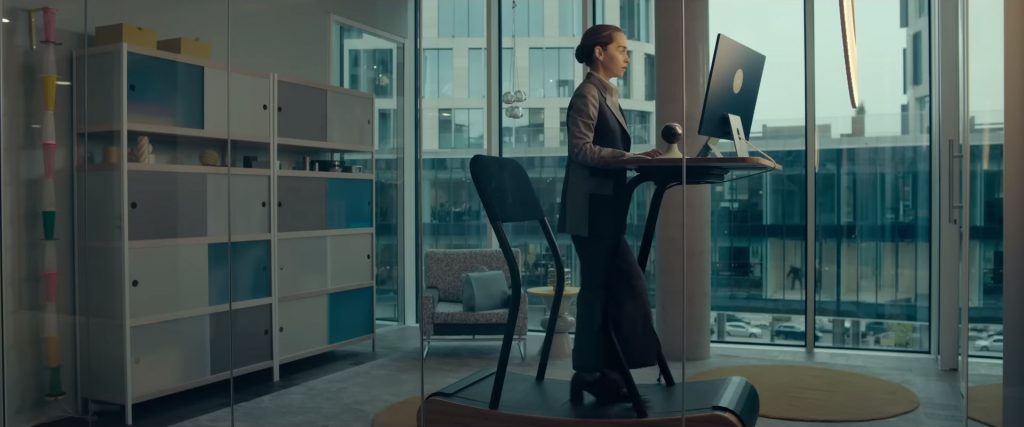
Set in a not-too-distant future where benevolent AI has infiltrated all aspects of human existence, the film starts with Rachel (Emilia Clarke) and Alvy (Chiwetel Ejiofor) awakening separately to begin their days. Rachel is up first, and has clearly embraced her AI personal assistant, who prepares her coffee, 3D prints her breakfast, and guides her through all aspects of her day. At work, she and her coworkers discover that the AI has become so good it’s replacing all of them, but since “progress never made anyone redundant”, they’re all moved to “more important” roles. I was reminded of the streaming show Severance, where it’s completely unclear what those jobs are. The purpose of their work seems to keep busy, feel important, and be productive, and that’s the point.
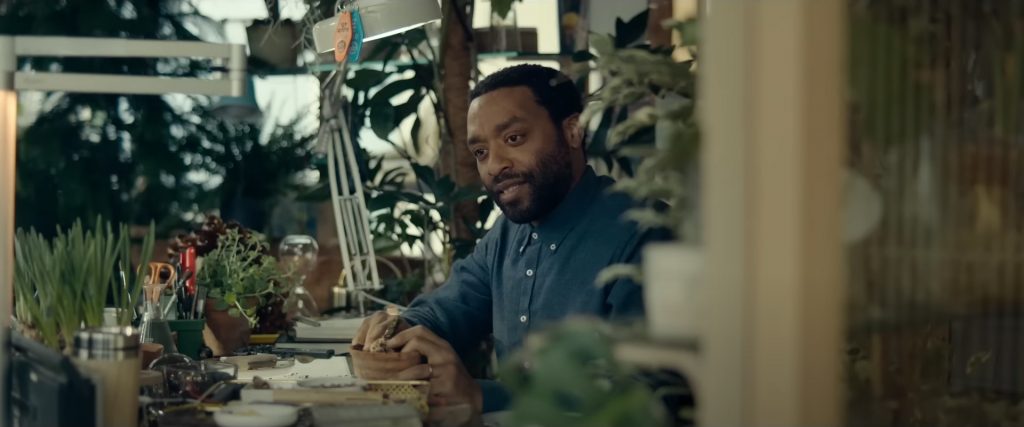
When Alvy awakens, he has little use for his AI assistant, who refuses to give him his coffee because of his irritated tone. This could be dismissed as a cute joke, but it’s part of the overarching theme. Alvy is a botanist and surrounds himself with living things. His hands seem to be constantly in soil, transplanting his plants, which are relegated to a single room in their vast apartment. When Alvy goes to work, he brings his students to a greenhouse and offers them a bite of a fig plucked from a fig tree. The students are horrified. It’s natural and they’ve never interacted with anything like that. One student accepts Alvy’s offer and takes a bite, but his reaction is left unknown: how the student feels about the fig doesn’t matter as much as the point already made. These botany students are more comfortable studying holograms of plants than their living counterparts.
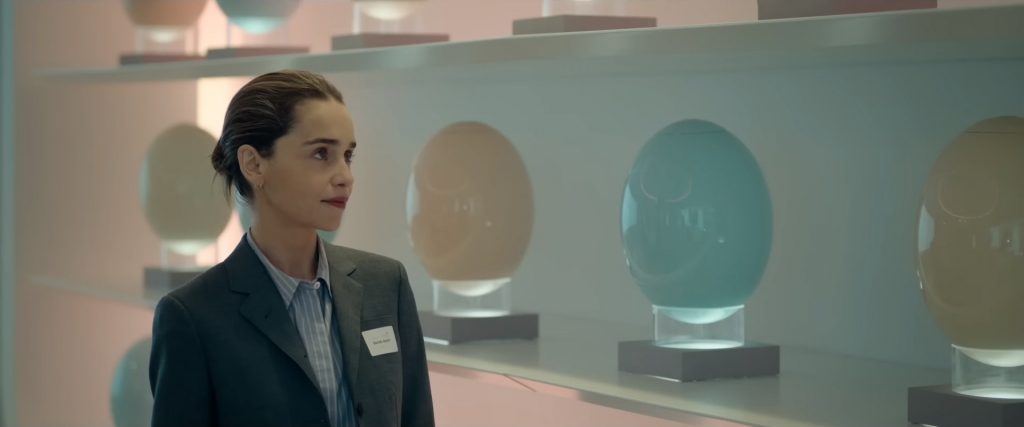
It’s here that we get to the crux of the story, when Rachel—who hasn’t even told Alvy that she signed up—has a tour of the Womb Center and decides she wants to have a child. When she discusses this with Alvy later that evening, their conversation is stilted and short. They are two opposites who don’t have any significant connection in their relationship.
Rachel tries multiple ways to convince Alvy, even having him see her therapist. Her therapist is just a disturbingly large AI eyeball. The more Alvy pushes back the more the façade of the AI’s intelligence breaks. The AI is only capable of keeping people calm. Eventually, the AI therapist changes the subject by suggesting Alvy purchase his own subscription. This is the second theme of the film: that with technology, everything can be commoditized.
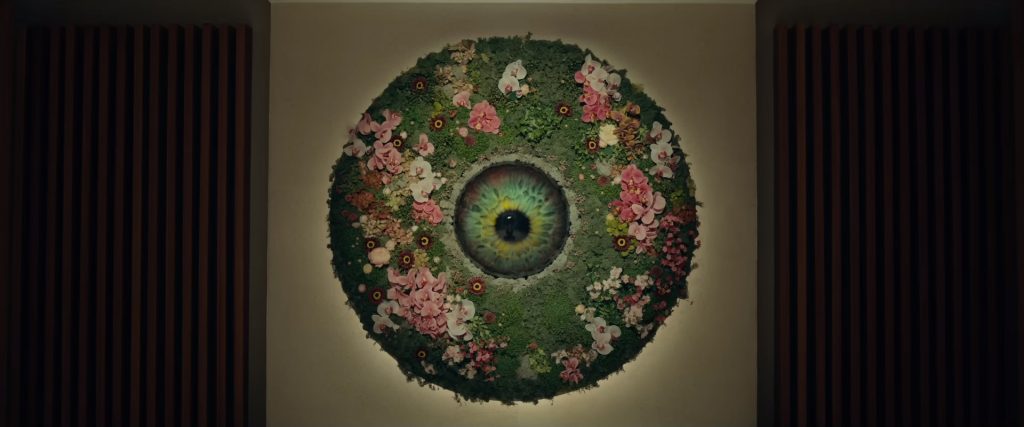
Of course, eventually Alvy relents, and they go to the Womb Center to become parents.
When they’re allowed to bring their pod—an egg-shaped container containing their child—home, it is Rachel who first develops an attachment to the pod: through her phone. An app allows her to schedule feeding and choose nutrients. It reminded me of that Talking Tom game where you play by feeding a cat and decorating his house. She’s not mothering, she’s playing with her Tamagotchi.
Eventually Alvy becomes attached to it. He wears it out in a harness, he opens the view window and stares at it. The more he becomes swept up by parenthood, the more Rachel is irritated and upset at his obsession: She’s afraid because she isn’t experiencing the same bonding.
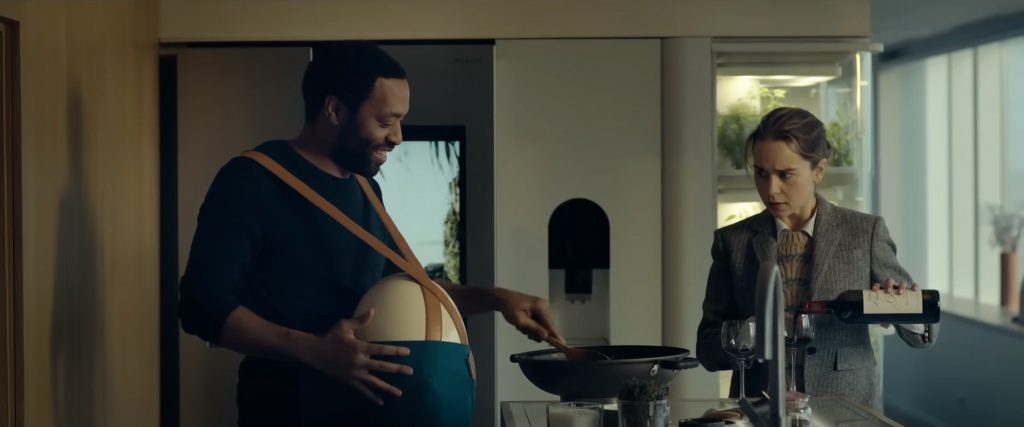
Things start to change in their relationship as well. As they both bond with the pod, they bond with each other, and as they begin to see the life they’ve created together—both their marriage and the child—the story shifts into the implications of their feelings and the theme of the film takes center stage.
In this future world, there is no climate change, no war, no political conflict: not because they don’t exist, but because they’re unnecessary distractions from the central theme and therefore left out. Women who cannot afford the Womb Center sport pregnant bellies and are hopeful that they’ll afford it for “the next one”. Everything—including the Womb Center services—is subscription based, allowing companies to offer seductive add-ons, if the consumers can afford it. The natural: trees, plants, and fresh air, have been either eradicated or commodified. And the AI running everyone’s lives seems focused primarily on keeping people calm to the point of submission.
The future world of The Pod Generation is thoroughly built and well thought out. It feels real and complete. Technology is, too. With so much talk in current news about AI destroying humanity, it was refreshing to see a film where AI has taken control of humanity by soothing it to a stupor. And while at first blush, the title, The Pod Generation, reflects the generation of children conceived in the Womb Center, it becomes clear it is a description of the parents. They have been lulled into this technological utopia, molded to be receptive to abandoning the last natural thing that makes us human and accept parenthood as the ultimate commodity.
While not an action blockbuster or a superhero extravaganza, The Pod Generation is an enjoyable cautionary tale about technology where the happy ending is the nightmare. For a thoughtful movie that will provide hours of conversation, I highly recommend it.
![]()

